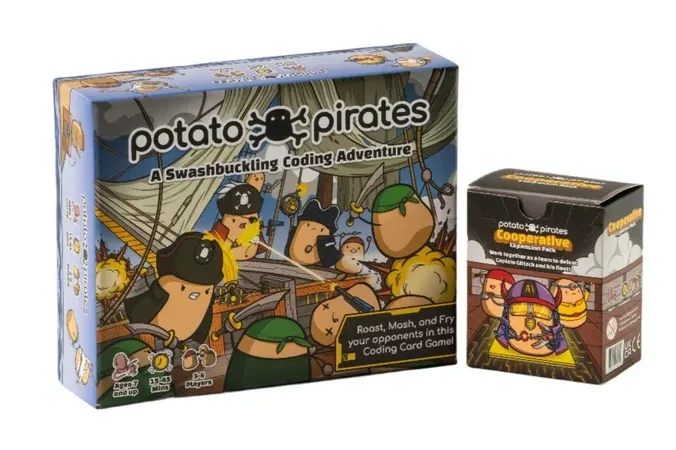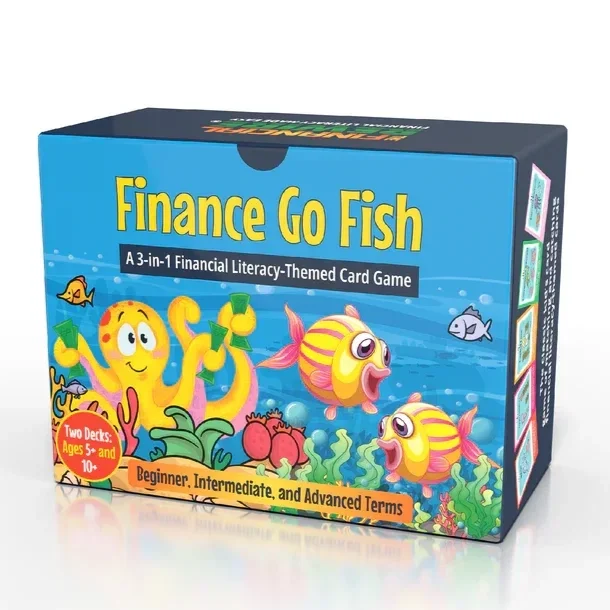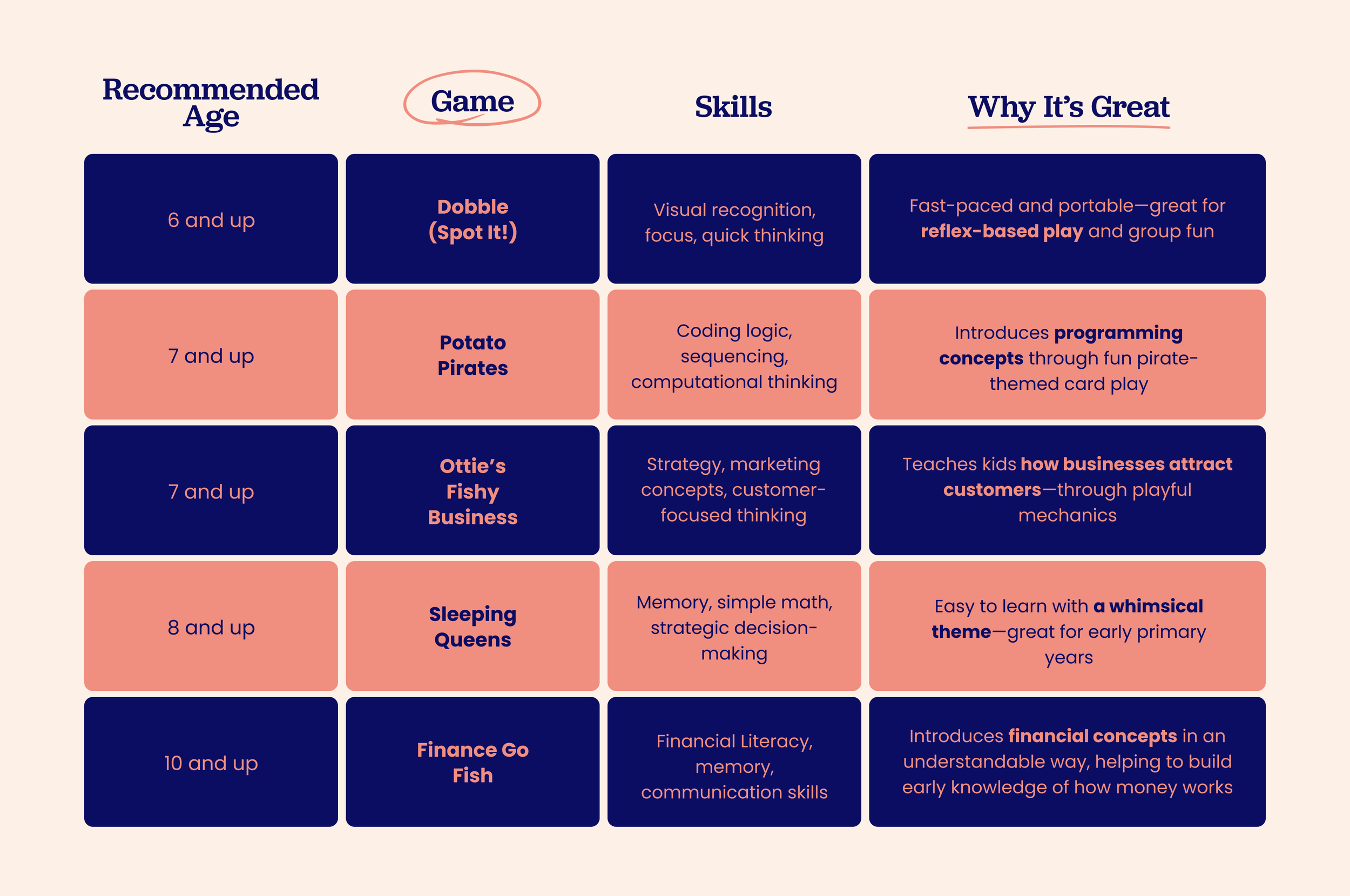Educational gifts for kids: fun card games for learning
Introduction
Educational toys are a powerhouse for early childhood learning, acting as the building blocks for a child’s creativity, problem-solving and curiosity. While digital gadgets are a popular tool and can be highly entertaining, excessive screen time limits hands-on discovery, and active engagement. Numerous studies have proven that interactive real-world play encourages deeper focus, social interaction, and critical thinking skills, with clear benefits over passive screen time (Canadian Pediatric Society, 2017).
For parents seeking affordable and educational ways to provide screen-free entertainment for their children on the go, educational card games offer a fun and engaging alternative. These hands-on games support your child’s cognitive development, strategic thinking, and communication skills, all while keeping them fully immersed in play.
In this article, we offer a comprehensive view of the latest children’s card games for elementary school children that teach cooperation, critical thinking, and problem-solving skills.
Why card games make great educational gifts
Card games are a timeless source of fun for all generations, combining entertainment with education. With simple rules and objectives, they create immersive experiences that train children in areas like strategic thinking, social interaction, and problem-solving through play. This portable, repeatable activity is a treasure trove of fun that families, friends, and children can enjoy almost anywhere, anytime — even on commute.
Learning through play: critical life skills
Card games support critical thinking in early childhood by encouraging children to make strategic decisions, adapt to new rules and solve problems immediately. Studies show that children who regularly play card games such as Uno or Go Fish demonstrate stronger cognitive flexibility and problem-solving skills (Hatching Dragons, 2025). This makes them a strong educational tool to teach children critical skills such as planning ahead, pivoting strategies, and remembering rules. All of these skills develop their analytical thinking skills in the long-term.
Moreover, card games including word recognition or matching can boost a child’s vocabulary, as children repeatedly encounter new words through play. This approach has proven to be highly effective at helping children develop their language skills (Raising Children. AU, 2023).
Card games also challenge a child’s memory, especially those involving matching pairs or complex rules and decision-making. These games help to improve a child’s short and long-term memory, encouraging them to store and recall different pieces of information almost immediately (Edge Early Learning, 2025).
Furthermore, card games improve a child’s social skills, and coordination. Their interactive, multiplayer nature teaches children patience, turn-taking, communication, empathy, negotiation and teamwork. This interaction is vital for children to learn how to win and lose gracefully, developing healthy emotional habits in the long-term (Edge Early Learning, 2025).
Portable & replayable: for travel, classrooms, or family bonding
Card games are also incredibly lightweight, and portable, making them easy to take along everywhere. This makes them ideal for travel, classrooms, and even family gatherings, providing spontaneous learning opportunities outside the classroom setting.
They are also highly replayable, with each session offering a fresh and unique experience. This keeps children engaged and excited to play, even when revisiting familiar card games. Educational research has highlighted the importance of the element of repeatability in reinforcing learning, showcasing how replaying card games can help children retain skills, deepen their understanding of concepts, and build confidence through practice.
Top fun card games for kids learning
Today, children can choose from a wide variety of card games—some purely for fun, others for learning, and many that blend both. Below, we’ve listed our top picks for educational card games that not only entertain but also encourage problem-solving, introduce new skills, and nurture critical thinking.
Ottie’s Fishy Business: a marketing‑themed game
Source: Ottie’s Fishy Business
Ottie’s Fishy Business is Singapore’s first homegrown marketing-themed game by local fractional marketing agency, OtterHalf. The game uses creative storytelling to help children aged 7-16+ learn more about the dynamic world of marketing, introducing basic concepts such as branding, partnerships, influencer marketing, and more — through the eyes of Ottie the otter, the adorable main character.
The gameplay is easy: help Ottie attract customers to her fish stand by matching the marketing-related icons on your Action Cards with that of the available Mission Cards. Wild Cards add an element of surprise, shaking up the leaderboard and keeping every turn exciting. The simple instructions, combined with immersive storytelling behind Ottie’s Fishy Business makes the game perfect for curious kids, parents, educators, and even adults young at heart.
Find out more about Ottie’s Fishy Business here.
2. Dobble (Spot It!): a pattern recognition game
Source: Spot it Game
Dobble (Spot It!) is a quick matching game for players aged 8+. Each circular card is covered in a unique set of colourful symbols, but any two cards share exactly one symbol. The objective of the game is to be the first to quickly spot the shared symbol, which can be increasingly tricky as the images vary in size and shape. The rapid recognition process enhances each player’s visual perception, hand-eye coordination, and pattern spotting skills, while promising an afternoon of screams and laughs in the process.
3. Potato Pirates: a coding-themed game
Source: Potato Pirates
Potato Pirates is a strategy card game designed for ages 7+. The game teaches basic coding concepts in a fun, and understandable way, attracting kids with its quirky potato characters and immersive storytelling. Players take on the role of potato pirates, sailing the seas in search of ships to attack and loot. Using a mix of action cards, programming cards, and power-ups, they “code” sequences of pirate moves to outwit their opponents and save the potato kings. During this process, the game integrates coding logic like loops, conditionals, and sequencing, helping children understand programming fundamentals while having fun with their friends and family.
4. Sleeping Queens: a strategic thinking game
Source: Gamewright
Sleeping Queens is a whimsical, fantasy card game for ages 8+ that teaches children strategy and enhances their memory. Players take turns waking up the sleeping queens from their royal slumber using number cards with special abilities and point values. They can task knights to steal queen cards, deploy dragons to defend themselves, and use magic potions to send another player’s queen back to sleep. The game encourages problem-solving, and computation skills by requiring players to solve simple math problems, strategic thinking, memory skills while entertaining children with its fairytale theme.
5. Finance Go Fish: a financial literacy-themed game
Source: Financial Rewire
Finance Go Fish is a playful reimagination of the classic Go Fish game, designed to teach kids financial literacy in a quick and fun way. Suitable for ages 10+, it teaches financial concepts such as saving, spending, investing, budgeting, and inflation. Players collect matching sets of cards that represent real-world money habits and scenarios, learning terms and ideas as they play. This allows them to practice financial decision-making, challenge their memory, and build communication skills — while developing their understanding of how money works.
Choosing the right card game by age
Choosing the right card game that fits a child’s age is essential to keep them engaged, challenged and build their confidence as they play. Games need to match their developmental stage to ensure that they can easily understand a game’s rules and play, stimulating their young minds without leading to frustration. This encourages them to practice the right cognitive, social, and motor skills while ensuring a stress-free gameplay experience.
Tips for maximising learning & fun
Set clear learning goals
Before starting, decide what you want your kids to learn from the game, which can range from learning new vocabulary, enhancing memory, practicing arithmetic skills, or understanding business concepts. Focusing on a particular skill helps you choose the right kind of game for you and your kids.
Encourage group play
As much as possible, try to play in group settings like family and friends to spark discussion, teamwork, and friendly competition. Talking through strategies, explaining rules, and sharing observations can help children develop their communication skills, and deepen their understanding of key concepts such as coding, marketing, or finance embedded within the game.
Rotate games for variety
Keep experiences fresh for your children, and target different skills by rotating between different games. Each educational card game builds different skills ranging from visual recognition, memory, verbal reasoning, strategic thinking, STEM knowledge, and business skills. Trying out new games can ensure a well-rounded mix of learning opportunities, while keeping your children entertained.
Conclusion
Educational card games are more than just a source of entertainment. They are a highly powerful tool for helping children develop their cognitive skills and knowledge in a fun, engaging, screen-free way. Whether your child is learning marketing through Ottie’s Fishy Business or developing financial literacy with Finance Go Fish, each game offers unique opportunities to strengthen their critical thinking, creativity, memory, strategy and social interaction skills. This makes them excellent educational gifts to help your kids learn and develop as they age.
Don’t miss out on Ottie’s Fishy Business — we designed it ourselves to teach children valuable marketing concepts through play. Through this educational game, they’ll learn how different marketing strategies contribute to growing a business.
Check out Ottie’s Fishy Business here.
FAQs (People also ask – PAA)
What are the easiest card games for young kids?
Simple matching or number-recognition games such as Go Fish, Old Maid, and Snap are ideal for young children. They have easy-to-understand rules, quick rounds, and minimal setup, making it easier for kids to learn and play independently with their family.
The easiest educational card game in our list is Dobble (Spot It!), a simple pattern recognition game that trains reflexes and visual perception.
How can card games boost educational development?
Card games can improve your child’s memory, attention span, problem-solving, and communication skills. Many games also introduce basic math, vocabulary, and strategic thinking in a fun, hands-on way. They are highly interactive social games that allow kids to practice their social skills such as turn-taking and patience.
Which card games are best for ages 8–14?
Older kids enjoy slightly more complex games that combine strategy, quick thinking, and knowledge acquisition, such as Ottie’s Fishy Business, a marketing card game, Sleeping Queens, a strategic fairytale-themed game, and Finance Go Fish, a financial literacy card game. These games can keep them engaged while testing their logical thinking, strategic planning, and adaptability skills.
Are card games better educational gifts compared to toys?
Yes. Card games are amazing gifts offering portability, affordability, and adaptability. They offer repeated play value without relying on screens.
While toys often focus on a single skill, card games can target multiple cognitive abilities at once, making them a versatile and lasting educational gift.








